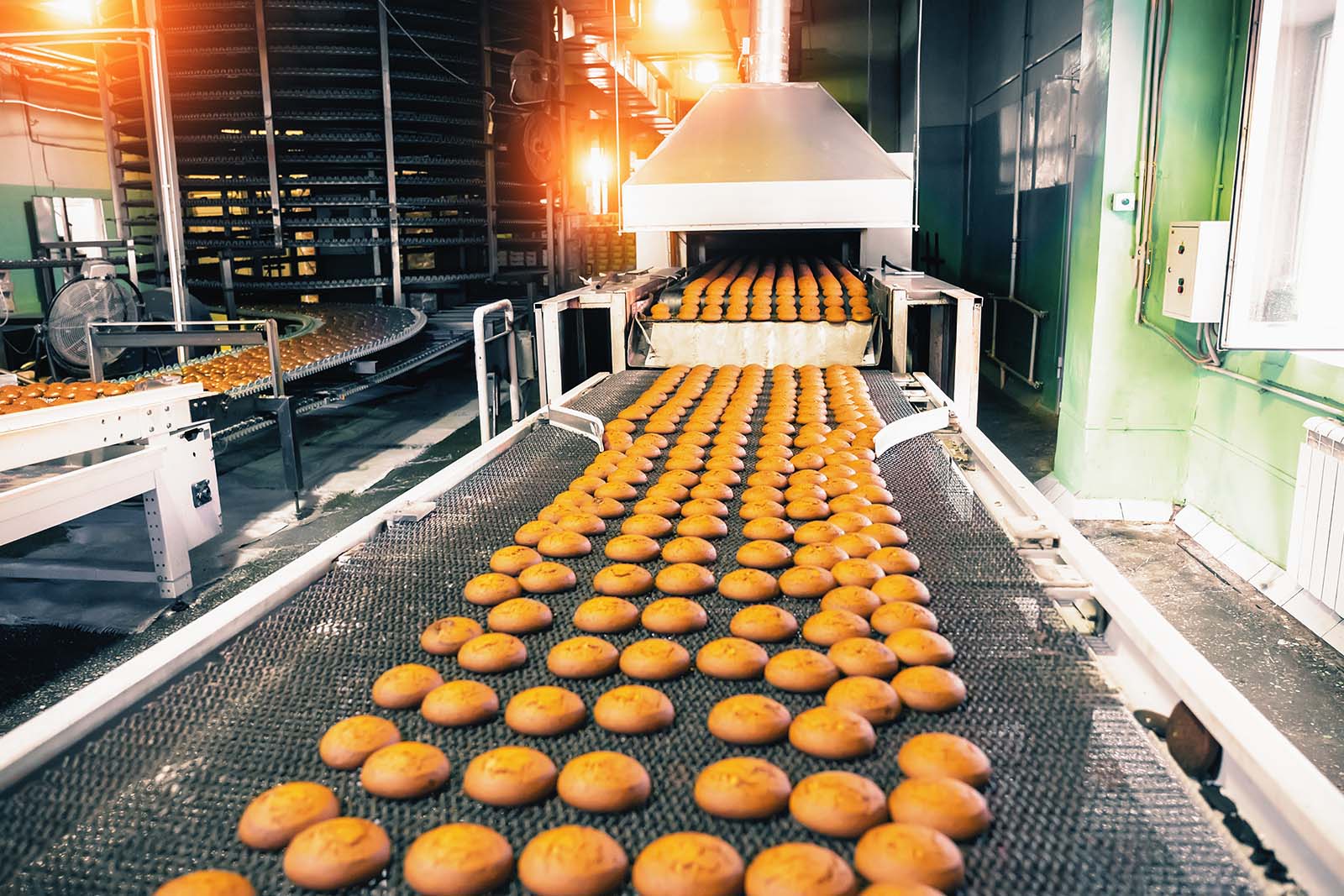Dust Collection for Food Processing
Food processing takes agricultural products like grain, sugar, eggs, spices, and nuts, and turns them into finished food products. Regulations for dust control are scrupulous in food and beverage processing. Not only must food and beverage processing plants meet OSHA and NFPA standards, but also food quality regulations at the state and federal level. Many agricultural products can create combustible dust, or create cross-contamination that can cause allergic reactions. Dust collection solutions can be integrated into multiple stages during food production and processing where dust can be generated.
Concerns for Food Processing Dust
During processing of dry food ingredients, combustible dust or sticky dust can be generated. Here are some of the types of dust that must be collected to prevent cross-contamination and prevent potential explosions.
- Grains
- Cereal ingredients
- Sugar
- Nuts
- Egg shells
- Flour
- Spices
- Corn starch
- Raw agricultural products / feed
- Hygroscopic dusts
- Allergens
- Soybeans
Common Applications
Ideally, dust from food processing is captured at the point of generation. Dust collection systems in food processing plants may also consider nuisance dust, to protect workers from breathing allergens or respirable dust. Here are common procedures that can generate dust during food production.
- Drying
- Mixing
- Dumping and Pouring
- Batching
- Weighing
- Transferring
- Conveying
- Packaging
- Transport
- Storing raw ingredients
- Smoking meats
- Sugaring
- Salting
- Freezing
Solutions for Food Processing
Material handling grains, cereal, dried beans, sugar, dairy, spices, and other ingredients require collection at the point of dust generation. Issues with cross-contamination must be addressed. Airborne dust that collects in constricted space can also cause explosions or deflagration. Consult with the application specialists at Airpro to find the right solution for your facility.
Conveying finished products like crackers, cookies, biscuits, pasta, baked goods, powdered milk, and other food products may cause airborne dust. Dust collection systems that source capture dust are recommended.
Packaging food products can also generate dust. Depending on the product, collected particulate can be returned to the process or collected as waste.
Storage of raw ingredients requires dust collection to extract combustible dust and prevent explosions, especially in silos and other restricted space storage areas.
Common Dust Collection Equipment
- Baghouse dust collectors
- Cartridge dust collectors
- PowerCore dust collectors
- Bin vents
- Ambient air cleaners
- Explosion mitigation equipment
- Spark detection equipment
- Fire suppression equipment

